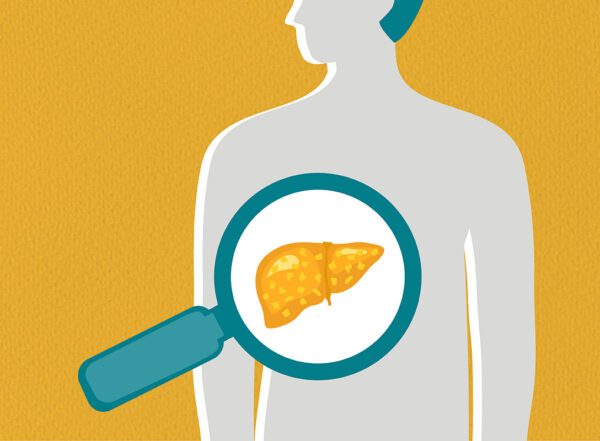Multicenter clinical study supports safety of deep general anesthesia
Minimizing anesthesia during surgery for older adults does not prevent post-op delirium
Washington University School of MedicineMichael S. Avidan, MBBCh (right), administers anesthesia during a surgery. He monitors the electrical activity of the patient's brain with chief anesthesiology resident Karam Atli, MD, to guide anesthesia dosage and ensure the patient does not experience unintended waking during surgery. New research from Washington University School of Medicine in St. Louis and other institutions supports earlier findings that indicate that anesthesia is no more hazardous for the brain at higher doses than at lower doses.
General anesthesia makes it possible for millions of patients each year to undergo lifesaving surgeries while unconscious and free of pain. But the 176-year-old medical staple uses powerful drugs that have stoked fears of adverse effects on the brain — particularly if used in high doses.
New findings published June 10 in the Journal of the American Medical Association (JAMA), however, support an earlier study that indicates that anesthesia is no more hazardous for the brain at higher doses than at lower doses, according to the researchers.
The new study reports results of a multicenter clinical trial of more than 1,000 older patients who underwent cardiac surgery at four hospitals in Canada. Researchers at these hospitals, in partnership with colleagues at Washington University School of Medicine in St. Louis, found that the amount of anesthesia used during surgery did not affect the risk of postoperative delirium — a state that may contribute to long-term cognitive decline.
“Concern that general anesthesia harms the brain and causes both early and lasting postoperative cognitive disorders is a major reason that older adults avoid or delay life-enhancing procedures,” said Michael S. Avidan, MBBCh, the Dr. Seymour and Rose T. Brown Professor of Anesthesiology and head of the Department of Anesthesiology at Washington University. “Our new study contributes to other compelling evidence that higher doses of general anesthesia are not toxic to the brain. Dispelling the misleading and pervasive message that general anesthesia causes cognitive disorders will have major public health implications by helping older adults make wise choices regarding essential surgeries, which will promote and sustain healthier lives.”
The dose of administered anesthesia historically has been a carefully calculated balance between too little and too much. Administering an inadequate amount puts patients at risk of experiencing intraoperative awareness. Despite advances in anesthesia care, about 1 in 1,000 people still experience unintended waking during surgery without being able to move or indicate their pain or distress. This can lead to suffering and lifelong emotional trauma.
“The good news is that the distressing complication of intraoperative awareness can be more reliably prevented,” said Avidan, the study’s senior author. “Anesthesia clinicians can now confidently administer a sufficient dose of general anesthesia, providing a margin of safety for unconsciousness, without being concerned that this will put their patients’ brains at risk. The practice of general anesthesia should change based on mounting reassuring evidence.”
Previous smaller studies have suggested that too much anesthesia could be to blame for postoperative delirium, a neurological problem involving confusion, altered attention, paranoia, memory loss, hallucinations and delusions, among other symptoms. A common postoperative complication affecting about 25% of older patients after major surgeries, delirium can be distressing to patients and family members. It is typically temporary but has been linked to longer intensive care and hospital stays, other medical complications, persistent cognitive decline and higher risk of death.
To study the impact of minimizing anesthesia on postoperative delirium, Avidan and colleagues previously conducted a similar clinical study in more than 1,200 older surgical patients at Barnes-Jewish Hospital in St. Louis. The researchers used an electroencephalogram (EEG) to monitor electrical activity in the brains of patients during major surgery and adjusted anesthesia levels to prevent brain activity suppression, considered a sign of excessive anesthesia levels. They found that minimizing anesthesia administration did not prevent postoperative delirium.
To expand upon the results of their single-hospital clinical trial, Avidan collaborated with Alain Deschamps, MD, PhD, a professor of anesthesiology at Universitè de Montreal in Montreal, and a team of Canadian clinical researchers, to conduct the multicenter trial involving patients at four hospitals in Canada — in Montreal, Kingston, Winnipeg and Toronto.
This randomized clinical trial enrolled 1,140 patients undergoing cardiac surgery, high-risk procedures with a high rate of postoperative complications. Roughly half of the patients had their anesthesia adjusted based on electrical activity in the brain, and the other group of patients received the usual care without EEG monitoring. The former group was exposed to almost 20% less anesthesia than the latter group and also had 66% less time with suppressed electrical brain activity, but in both groups, 18% of the patients experienced delirium in the first five days after surgery. Additionally, the length of hospital stays, the incidence of medical complications and the risk of death up to one year postoperatively were no different between patients in the two study groups. However, almost 60% more patients in the group that received less anesthesia had undesirable movements while their surgeons were operating, which could have negatively affected the surgeries.
“The thinking has been that deep general anesthesia excessively suppresses electrical brain activity and causes postoperative delirium,” Avidan said. “Taken together, our two clinical trials, including almost 2,400 high-risk older surgical patients at five hospitals in the United States and Canada, dispel the concern that higher general anesthetic dosing incurs a neurotoxic cost. Delirium is likely to be caused by factors other than general anesthesia, such as the pain and inflammation associated with surgery. Future research should explore other avenues to prevent postoperative delirium. But we can now confidently reassure our patients that they can request and expect to be oblivious, immobile and pain-free during surgical procedures, without worrying about general anesthesia damaging their brains.”






